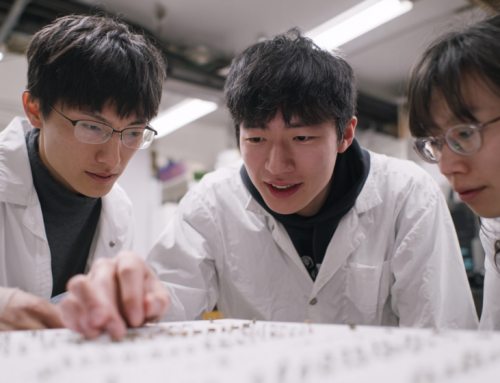
Google unveiled a sweeping wave of AI innovations at Cloud Next, including its most powerful chip yet, Ironwood, the top-ranking Gemini 2.5 model, a global enterprise-ready network, and quantum breakthroughs — all signaling its boldest leap into the future of intelligent infrastructure and advanced computing.(Source: Image by RR)
Google’s Ironwood TPU Promises 3,600x Performance Gain Over Original Chip
Google continues to push the frontier of AI, unveiling a series of new innovations and infrastructure upgrades at its Google Cloud Next event. Among the major announcements was the upcoming release of Ironwood, Google’s seventh-generation Tensor Processing Unit (TPU), which boasts a 3,600x performance improvement over its first TPU. The company also introduced Cloud WAN — making its global private network available to businesses for the first time — delivering a 40% boost in application performance and reducing operational costs. These enhancements reflect Google’s long-term commitment to building foundational technologies that power AI at massive scale.
In addition to hardware and infrastructure, Google highlighted significant strides in quantum computing and AI research. The Willow quantum chip, as noted in blog.google, achieved a major breakthrough in error correction, marking a critical step toward building large-scale quantum computers. Meanwhile, AI models like AlphaFold and WeatherNext are already impacting fields like biology and meteorology. The newly released Gemini 2.5 model, described as Google’s most intelligent to date, outperformed peers on industry benchmarks and is available across Google AI platforms. A lighter, faster, and more affordable version, Gemini 2.5 Flash, will soon follow to offer developers more flexibility in deploying AI.
Gemini models are now embedded across all 15 of Google’s consumer products — including seven with over 2 billion users each — enabling AI-driven features at an unprecedented scale. The models not only enhance existing platforms but also power new tools like NotebookLM for data synthesis and Veo 2 for advanced video generation, now used by major studios and advertisers. These tools leverage multimodal understanding and long-context processing to create sophisticated user experiences.
With this wave of announcements, Google reinforces its vision of building AI for real-world utility and global accessibility. From consumer apps to enterprise infrastructure, the company is working to democratize advanced AI technologies. Whether enabling creative professionals or scientists, startups or global brands, Google’s continued integration of AI into every layer of its technology stack ensures its leadership role in shaping the future of artificial intelligence.
read more at blog.google







Leave A Comment